
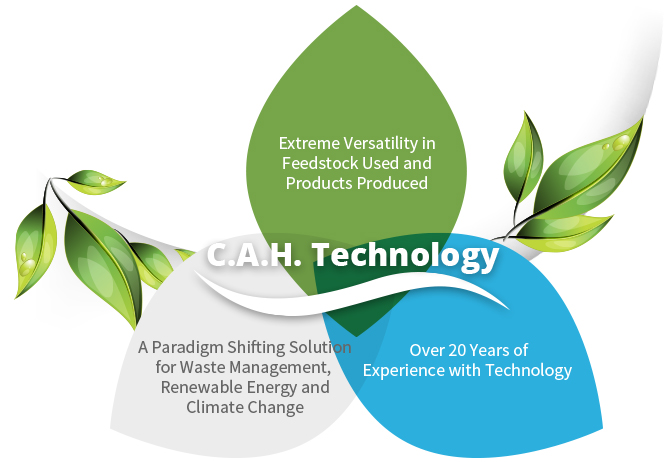
Unparalleled Versatility for Feedstock
The Arkenol technology is superior to all technologies in feedstock versatility.
Chemical hydrolysis is ambivalent to the feedstock (in pure or mixed forms such as MSW waste). The use of the sulfuric acid and the ionic strength can pull apart sugar chains and enter even the tightest cellulosic fiber mesh to break down the polymers effectively.
Meanwhile, enzymes are created by fungus grown on a specific feedstock and the enzymes created are generally best used on the same or similar feedstock.
Therefore, the use of chemical acid in lieu of biologically produced enzymes allow the process to utilize a wider variety of mixed green wastes and cellulosic feedstocks that are normally waste products or disposal problems for industry.
Such flexibility of feedstock acceptance by Arkenol’s acid hydrolysis technology allows the biobased chemicals production systems to be adapted universally by matching locally available raw materials waste or virgin – with the needed chemicals for meeting the market demands.
![]()
straws, corn stalks and cobs,
bagasse, cotton gin trash,
palm oil wastes, etc.
![]()
recycled newspaper,
paper mill sludge,
sorted MSW, etc.
![]()
palm byproducts, leaves,
grass clippings,
vegetable and fruit wastes, etc.
![]()
grasses, sweet sorghum,
fast growing trees, etc.
![]()
prunings, wood chips,
sawdust, etc.
The Largest Spectrum of Supported End-Products
There is a clear competitive advantage in Arkenol’s process: flexibility on both the front end (a multitude of feedstocks) and flexibility of end-products (since the simple sugars can be used to make a multitude of end-products). Our understanding is that rival cellulosic ethanol processes can be very narrow in their application, relying on specific enzymes or other agents to work on very specific pathways, requiring a narrow limit on acceptable feedstocks and generating very specific products at the back-end.
No Use of Enzymes or GMOs
Arkenol’s process does not rely on “superbugs”, specialized enzymes, or other genetically modified organisms as other companies are developing. In contrast, Arkenol’s process uses sulfuric acid to break down the cellulose into C5 and C6 sugars that could then be used to make a variety of chemical products.
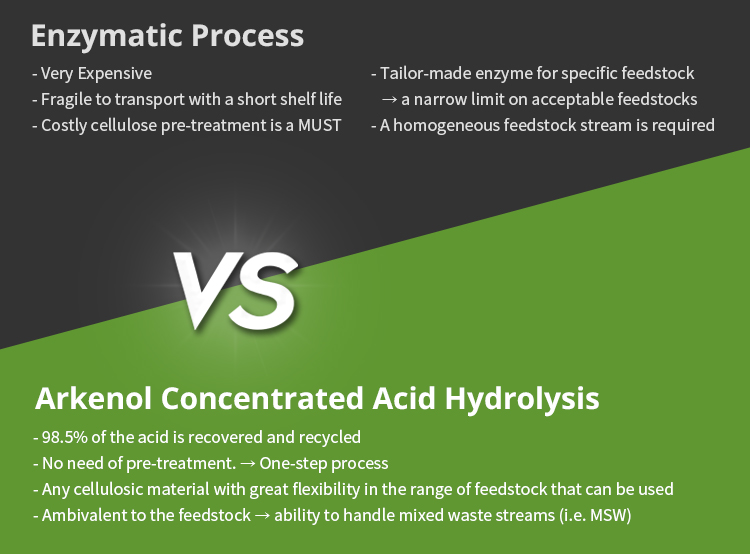
High Conversion Process Efficiency
Arkenol’s fermentation systems are based on fermenting both five- and six carbon sugars to value-added end-products. This immensely adds to the overall economic productivity of the process. Conventional fermentation schemes are limited to processing only six-carbon sugar into ethanol or other end products.
One of the highest
of the biomass to sugar
conversion technologies
More than 50% higher
than dilute acid processes
High Quality and Purity of Sugars
All byproducts are
usable and saleable
(i.e. lignin, gypsum, animal yeast)





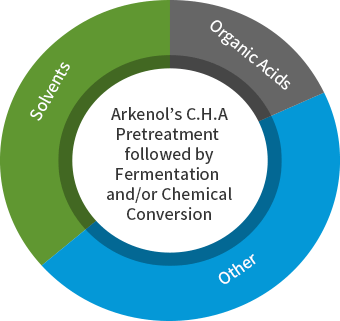

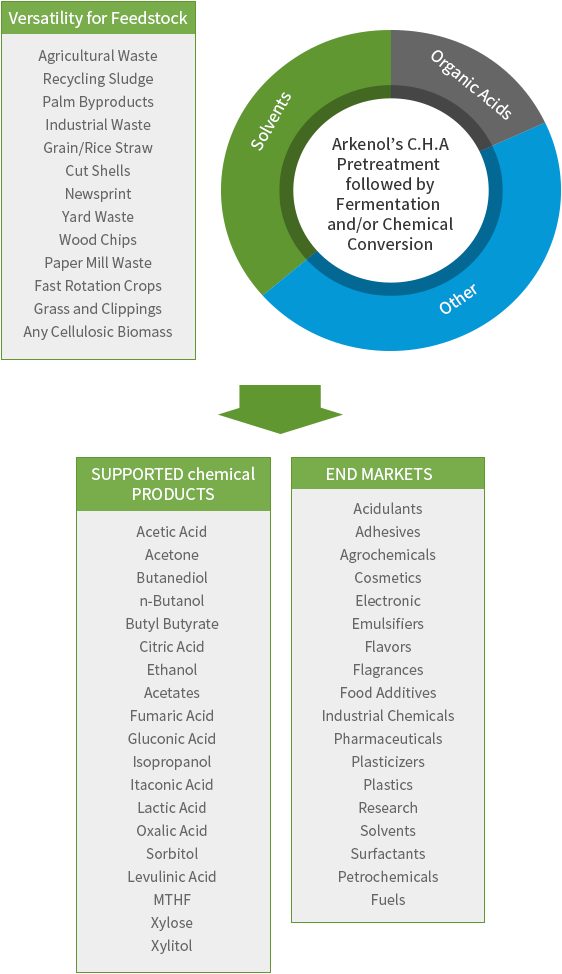
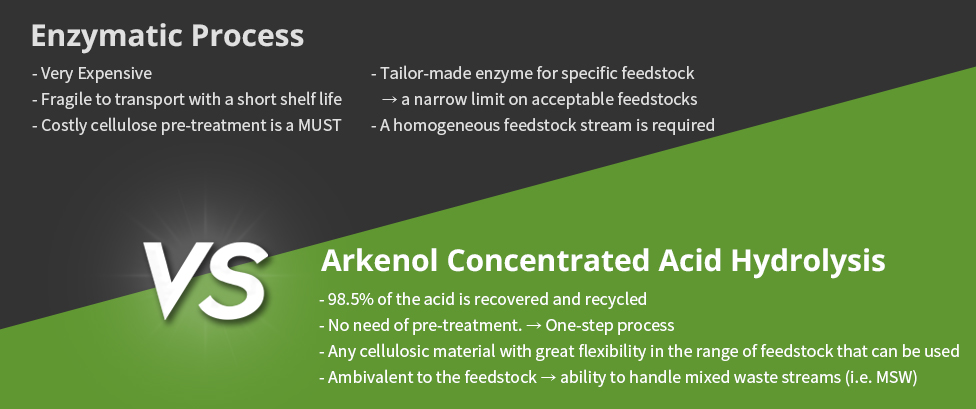
 COPYRIGHT © 2016 ARKENOL & AKR. ALL RIGHTS RESERVED.
COPYRIGHT © 2016 ARKENOL & AKR. ALL RIGHTS RESERVED.